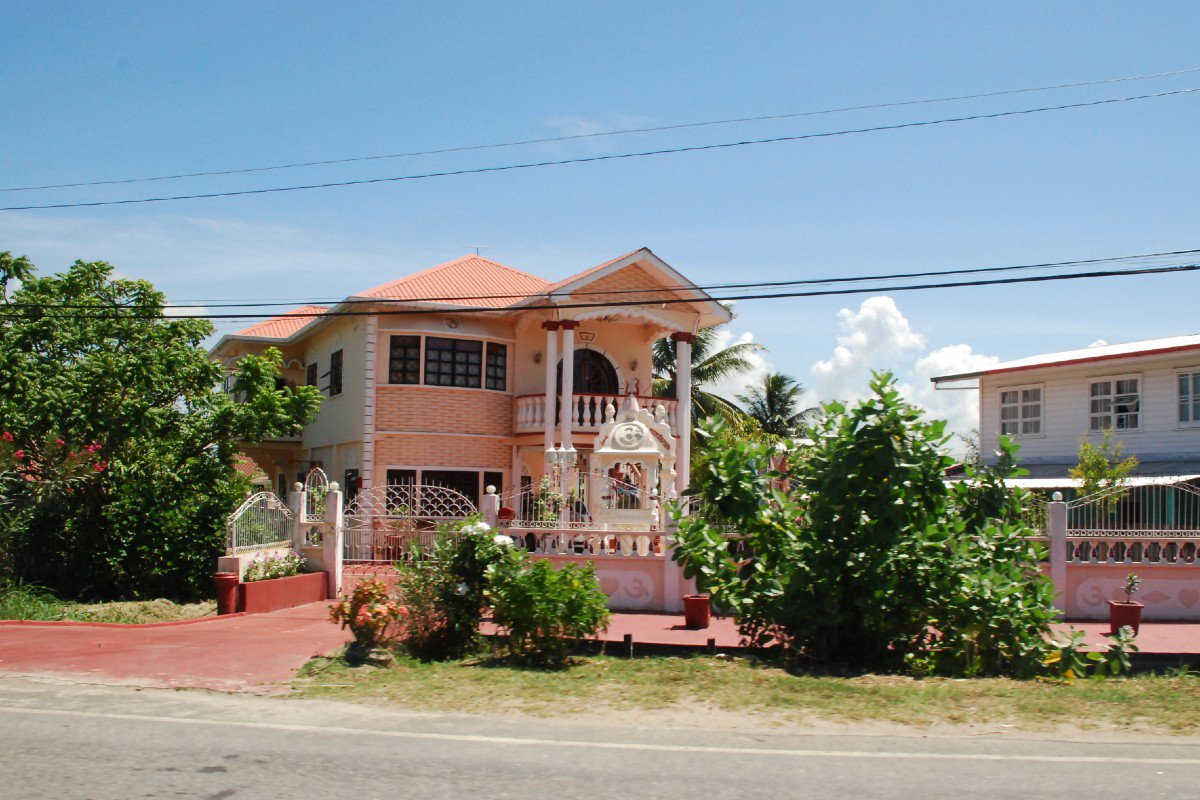Burner Phones, Galoshes, and Mashramani in Guyana
 On the road. Photo courtesy of Arisa White.
On the road. Photo courtesy of Arisa White.
In Arisa White's new memoir, Who's Your Daddy, the poet travels to Guyana to repair her relationship with her estranged father. She tells us about the dense forests, waterfalls, and landmarks she encountered along the way.


What brought you to Guyana?
With a grant I received from the Center for Cultural Innovation in Los Angeles, I went to visit my father, who I haven’t seen in over 30 years. The reconnection wasn’t only with my father but to remember the part of myself that did not contain this particular loss. That part that didn’t fear a significant one leaving, the frayed feeling of disconnection — like all of you becomes available to all the elements. Who was I when I knew the presence of my father?
Best advice you got before you left?
"Get a throw-away cell phone," said the sales associate at the Verizon store, when I went there inquiring about international cell phone plans. I didn’t heed his advice, but instead chose to use Skype, but when the internet connection was down or unstable, I wished I had listened to the sales associate.
Your Itinerary
Since this trip was about reuniting with family, we primarily stayed in Georgetown (the capital city and country's main port). Walked around the city and Sea Wall, frequenting local restaurants and attractions, like The National Museum, Stabroek Market, St. George’s Cathedral, and City Hall. We received a helpful map of Georgetown, with places to visit, and so each day we selected a road and went on a walkabout.
Any surprises?
The beach surrounding the Sea Wall isn’t a tourist attraction at all — it is trashy, and the waters are so rough and murky, don’t think of going in. A lot of the local businesses on the Sea Wall were closed down. When we shared our observations with the manager at our hotel, she told us that Guyana has beautiful white sand that they export, often to other beach resorts in the Caribbean. So to think, you can be in Jamaica — walking on Guyana sand.
What did you know by the last day that you wish you had known on the first?
When going during the wet season, bring proper footwear for the rain. I so could have used a pair of galoshes.


This was especially great:
Mashramani. Auspiciously, our trip coincided with the annual festival that celebrates Guyana becoming a republic, and the hotel where we stayed was a block away from the parade route. The music started blasting in the early morning and went into the late night — soca, chutney, reggae, dancehall, old and new. Although not as populated as the West Indian Day Parade I would frequent as a child and teenager in Brooklyn, NY, it reminded me of those late summers with my family and friends, moving through the packed crowds, colorful and sexy costumes, music loud and coming from all directions, and people for blocks, full of island-pride and rhythm.
But this wasn't:
The Guyana Zoo. The animals looked so sad in their cramped cages.
One place you didn't get to visit, but wanted to:
Shell Beach, on the Venezuelan border, is the nesting site for several species of sea turtles. Going there would have required we stay at least two nights, and we did not plan appropriately for that.
You can't stop thinking about:
Kaieteur Falls, which is the world’s most powerful single-drop waterfall. (Read an excerpt about the waterfall in White's new memoir.)
Would you go back?
Walking side by side with my father, after 30-plus years of distance, the sun setting on Georgetown, I experienced a sense of place, a greater sense of belonging. We saw and felt how we embodied each other. It was a spiritual mapping — we were back in a relationship, and that was affirming. From this loss, that hollowed land, I was able to know again a profound sense of yes. So yes, I would go back.
